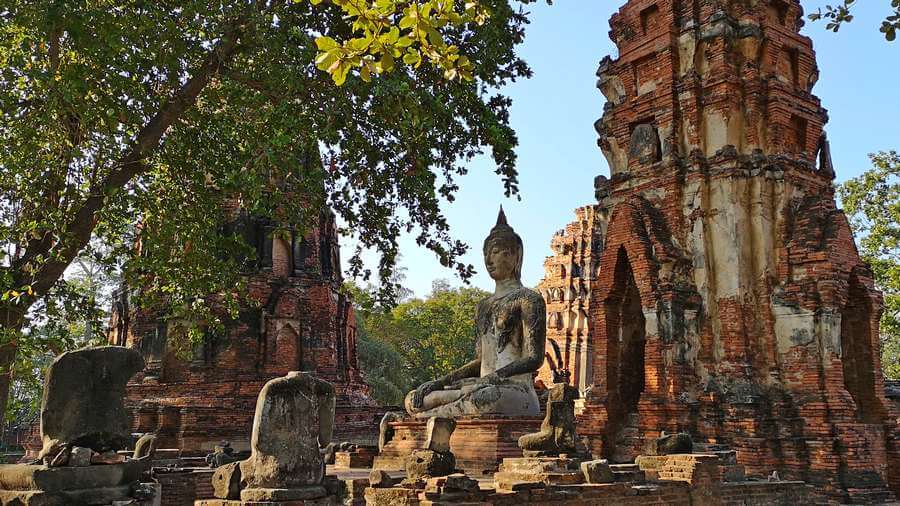[NOTE: The term “good will” below is abyāpādo, sometimes translated literally as “non-ill will.”]
“Bhikkhus, there are these four Dhamma factors, primal, of long standing, traditional, ancient, unadulterated and never before adulterated, which are not being adulterated and will not be adulterated, which are not repudiated by wise ascetics and brahmins. What four?
(1) “Non-longing is a Dhamma factor, primal, of long standing, traditional, ancient, unadulterated and never before adulterated, which is not being adulterated and will not be adulterated, which is not repudiated by wise ascetics and brahmins.
(2) Good will is a Dhamma factor, primal, of long standing, traditional, ancient, unadulterated and never before adulterated, which is not being adulterated and will not be adulterated, which is not repudiated by wise ascetics and brahmins.
(3) Right mindfulness is a Dhamma factor, primal, of long standing, traditional, ancient, unadulterated and never before adulterated, which is not being adulterated and will not be adulterated, which is not repudiated by wise ascetics and brahmins.
(4) Right concentration is a Dhamma factor, primal, of long standing, traditional, ancient, unadulterated and never before adulterated, which is not being adulterated and will not be adulterated, which is not repudiated by wise ascetics and brahmins.
“These are the four Dhamma factors, primal, of long standing, traditional, ancient, unadulterated and never before adulterated, which are not being adulterated and will not be adulterated, which are not repudiated by wise ascetics and brahmins.”
One should dwell free from longing
with a heart of good will.
One should be mindful and one-pointed in mind,
internally well concentrated.
Read this translation of Aṅguttara Nikāya 4.29 Dhammapadasutta: Dhamma Factors by Bhikkhu Bodhi on SuttaCentral.net. Or read a different translation on SuttaCentral.net or DhammaTalks.org. Or listen on PaliAudio.com or SC-Voice.net. Or explore the Pali on DigitalPaliReader.online.
Or read a translation in Deutsch, বাংলা, Français, Bahasa Indonesia, Italiano, 日本語, မြန်မာဘာသာ, Norsk, Português, Русский, සිංහල, ไทย, Tiếng Việt, or 汉语. Learn how to find your language.




